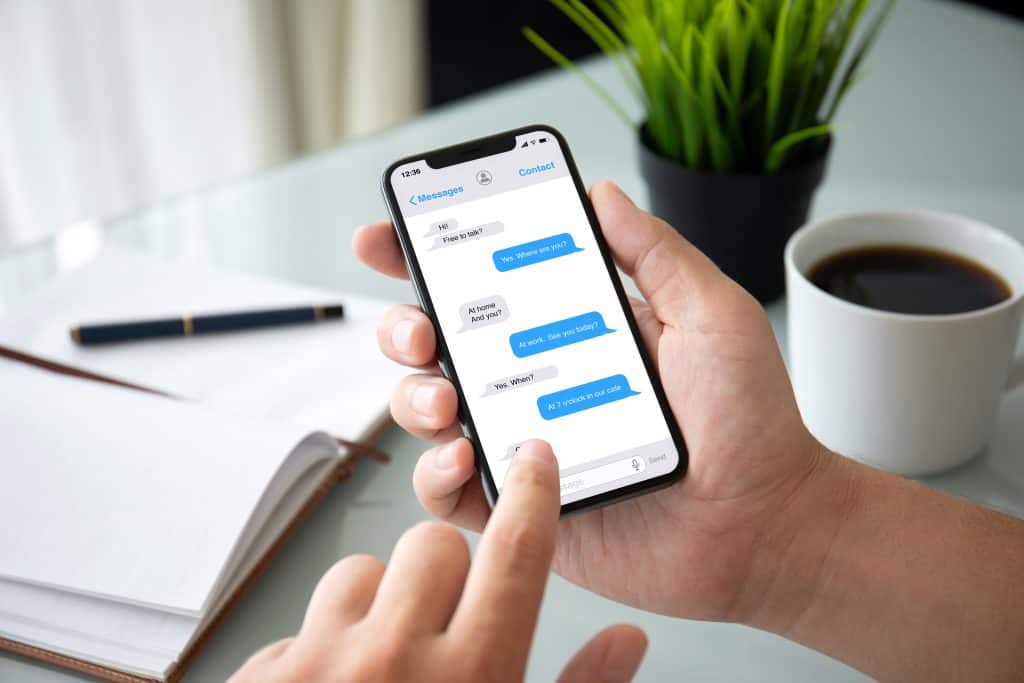Instant messengers have evolved over the past five years into an essential customer communication channel for both B2C and B2B businesses. With over three billion users, messaging apps play an important role in a brand’s digital marketing strategy, allowing them to engage customers in the most comfortable way. Let’s take a look at how messenger marketing can help establish strong relationships between brands and consumers, generate more high-quality leads, and, consequently, drive more sales.
Most popular messengers in the world
Stats show that the global messenger audience includes every third person in the world. The most popular messengers are WhatsApp, WeChat, Facebook Messenger, and Telegram.
WhatsApp has almost 2 billion active users worldwide — the largest share among all messaging apps. The messenger provides several options for businesses of various sizes and goals. Small businesses that use social media, one-page websites, or landing pages to sell their products and have relatively low traffic of incoming messages can benefit from using WhatsApp Business. The solution offers plenty of options for business, such as setting up a company’s profile; templates that help to respond to messages more quickly; linking personal phone number, just like in conventional WhatsApp. Meanwhile, WABA (WhatsApp Business API) is a specialized solution suitable for businesses that face heavy communication traffic and includes several signature features designed with large business in mind.
Facebook Messenger. Over 1.3 billion users are already on Facebook. Businesses can use Facebook Messenger to help attract the attention of potential customers and produce high-quality sales leads. Additionally, it can be used to re-engage clients, offering personalized promotions. Finally, through this channel, your companies can offer prompt support.
Instagram Direct is a private instant messaging service provided by the popular mobile photo-sharing social media platform Instagram. It can be used by companies to contact clients directly and develop personalized communication strategies.
Telegram. To share content, businesses can use the features of personal Telegram accounts, build Telegram bots, and/or run Telegram channels. Personal accounts can be used by sales or support staff as well. Additionally, Telegram Bot can ease the burden on contact centers by automatically responding to frequent inquiries from customers.
How messenger marketing works
Using such platforms as Facebook Messenger, WhatsApp, Telegram, and Viber, a brand develops meaningful and personalized communications. This makes it possible to achieve several goals with messenger marketing:
Warm up customer base. Compared to cold calls and annoying emails, messengers are an effective tool to warm up your customer base before making direct sales. This reduces churn rate and improves transaction rates, as well.
Real-time support & feedback. Instant messengers provide a quick and easy way for a client to contact support regarding an issue or leave feedback about a product or service of a company. Such a form of communication feels more personal than emails, without requiring so much time and focus as a phone call, for example.
Get more audience insights. You can discover a wealth of new data and categorize an audience according to its preferences and demographics by analyzing conversations in messengers.
Personalize content marketing. As a result of more insights about the audience, you can achieve better content distribution, sending only relevant and meaningful offers to customers, thus getting quicker purchase conversions.
Automate routine. Chatbots, template answers to frequently asked questions — all of these make messengers an effective tool to decrease employees’ workload by optimizing work processes, providing them with more time to process additional leads and claims, without hiring extra staff or cost increases.
Who can benefit from messenger marketing?
An effective messenger marketing strategy gives companies from different industries an efficient option to optimize hundreds of discussions from several channels at once, enabling them to scale their social media marketing efforts, handle more queries, produce leads, and acquire new clients.
In terms of team members, employing messenger marketing requires:
Direct marketer. a professional who automates sales funnels, develops chatbots, and works with audiences and segments (also integrates messengers with CRM systems).
SMM expert. A person is responsible for managing instant messengers and social media content.
Sales. Use messengers at all stages of the sales funnel to close deals and convert leads into clients.
Team leaders and business owners. Assess the efficiency of every communication channel and team members, then devise tactics and strategies to optimize and automate operations inside.
The advantages that messenger marketing provides can help businesses increase their sales and achieve a long-term positive effect on the brand’s positioning, lead generation, and customer relations. To make things easier and avoid switching between multiple chats and messengers, consider employing an omnichannel messaging platform like Umnico. The platform allows you to merge all conversations into a single easy-to-use interface, and store and access client details in a centralized manner.
Disclaimer: The views and opinions expressed in this article are those of the authors and do not necessarily reflect those of Geek Vibes Nation.

Amanda Lancaster is a PR manager who works with 1resumewritingservice. She is also known as a content creator. Amanda has been providing resume writing services since 2014.






